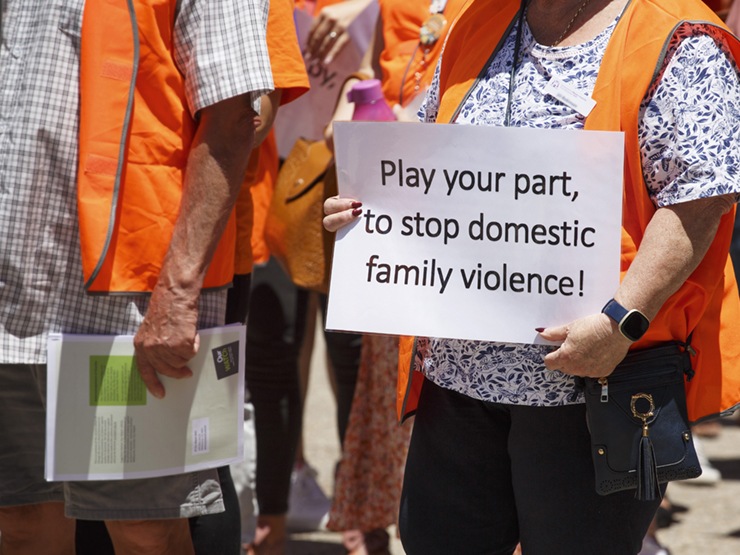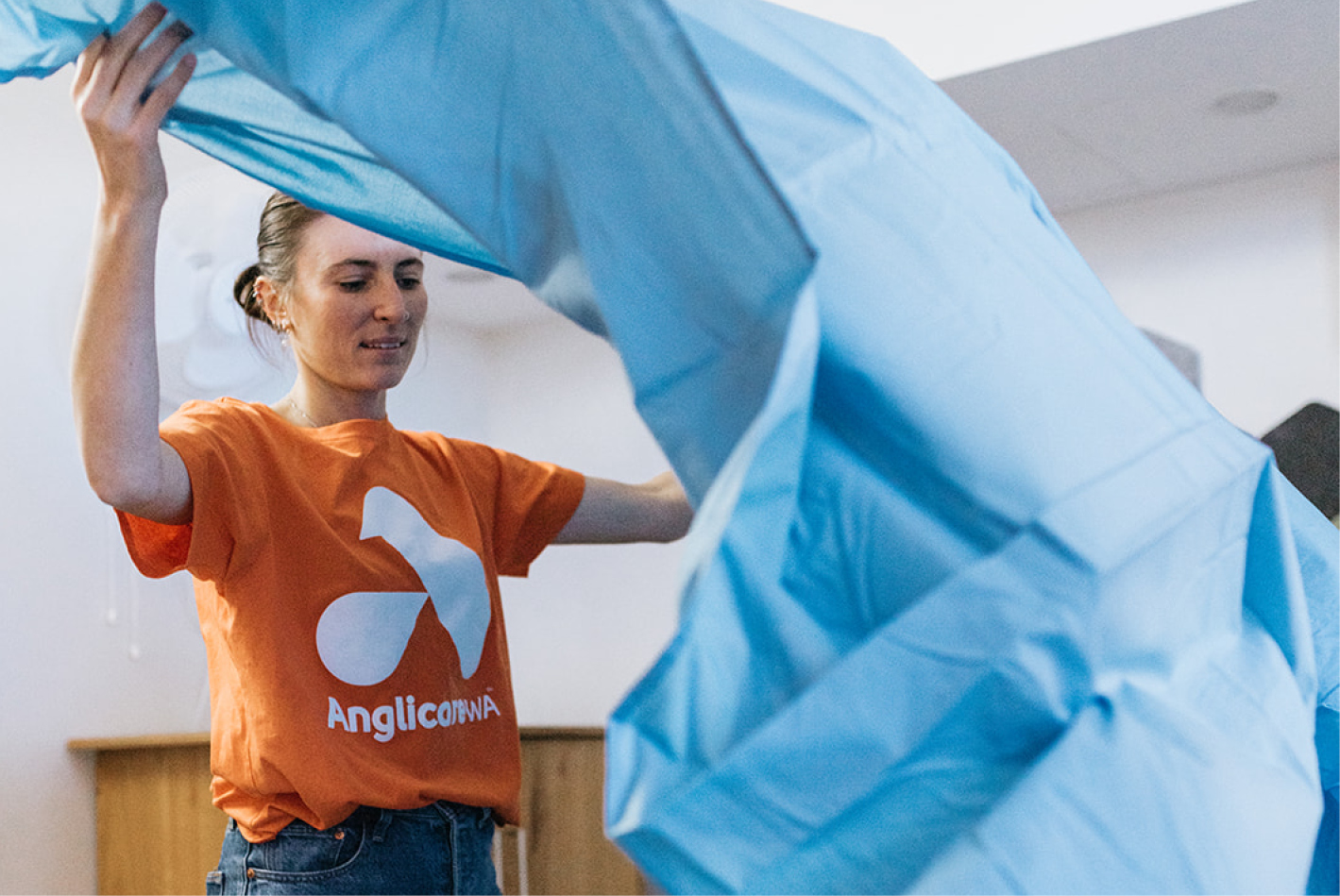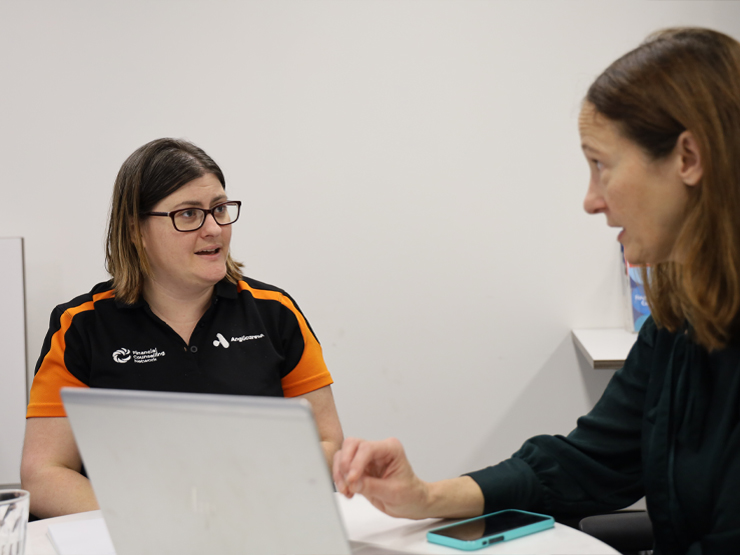
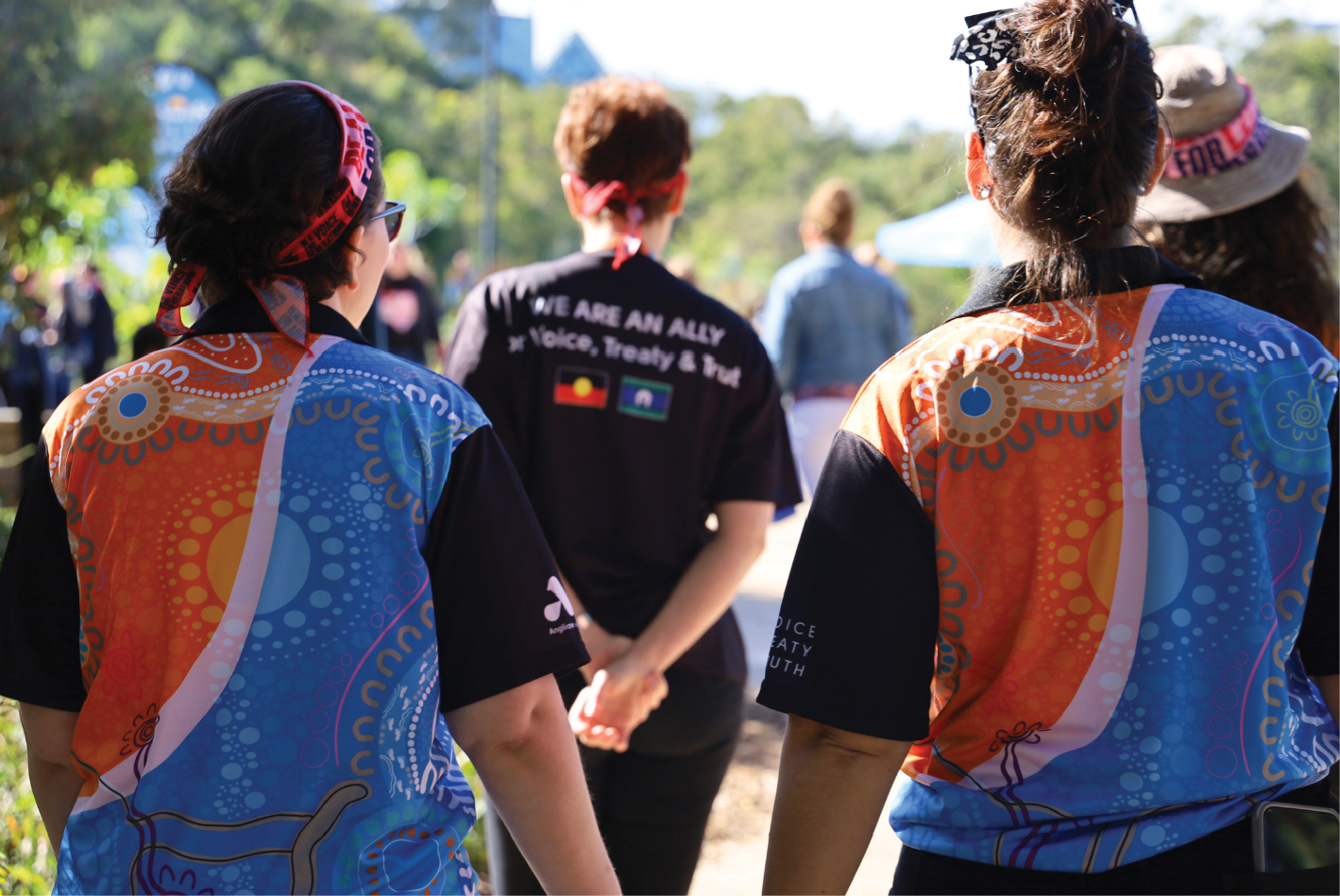
Partnering with and Empowering Aboriginal Communities
Working alongside, learning from, and supporting Aboriginal peoples and communities.
Anglicare WA has a long history of working closely with Aboriginal peoples, as clients, advisors and partners in social change. We are proud of our history and of the support we provide to approximately 5,000 Aboriginal peoples across the State each year. We also recognise that our organisation, just like our community and our country, still has a lot further to go.
Our Goal
Aboriginal and Torres Strait Islander Recognition and Justice by truth-telling, listening, healing & valuing Culture.
The Problem
Successive government policies to date have failed Aboriginal and Torres Strait Islander Peoples. This has resulted in disparate inequalities throughout almost all wellbeing and economic measures across the State (and Australia).
*These statistics may fluctuate based on recent reports released.
50.3 per 1,000 Aboriginal and Torres Strait Islander children were in out-of-home care in 2024
The number of Aboriginal and Torres Strait Islander people in prisons rose 30% since 2019
The suicide rate among Aboriginal and Torres Strait Islander people in 2024 was 32.5 per 100k
88.3% of Aboriginal and Torres Strait Islander people aged 15+ used the internet in 2023-24
Indigenous Australians face a disease burden 2.3 times higher than non-Indigenous Australians
Indigenous Australians have 11.5% higher unemployment rates than non-Indigenous Australians
Systemic change is needed to overcome these barriers.
Governments, organisations and the community must respect the knowledge and expertise of Aboriginal and Torres Strait Islander people by listening and accepting to Aboriginal and Torres Strait Islander voices on issues relating to Aboriginal and Torres Strait Islander matters.
As a community, we need to acknowledge the voice of Aboriginal and Torres Strait Islander people as expressed in the Uluru Statement from the Heart.
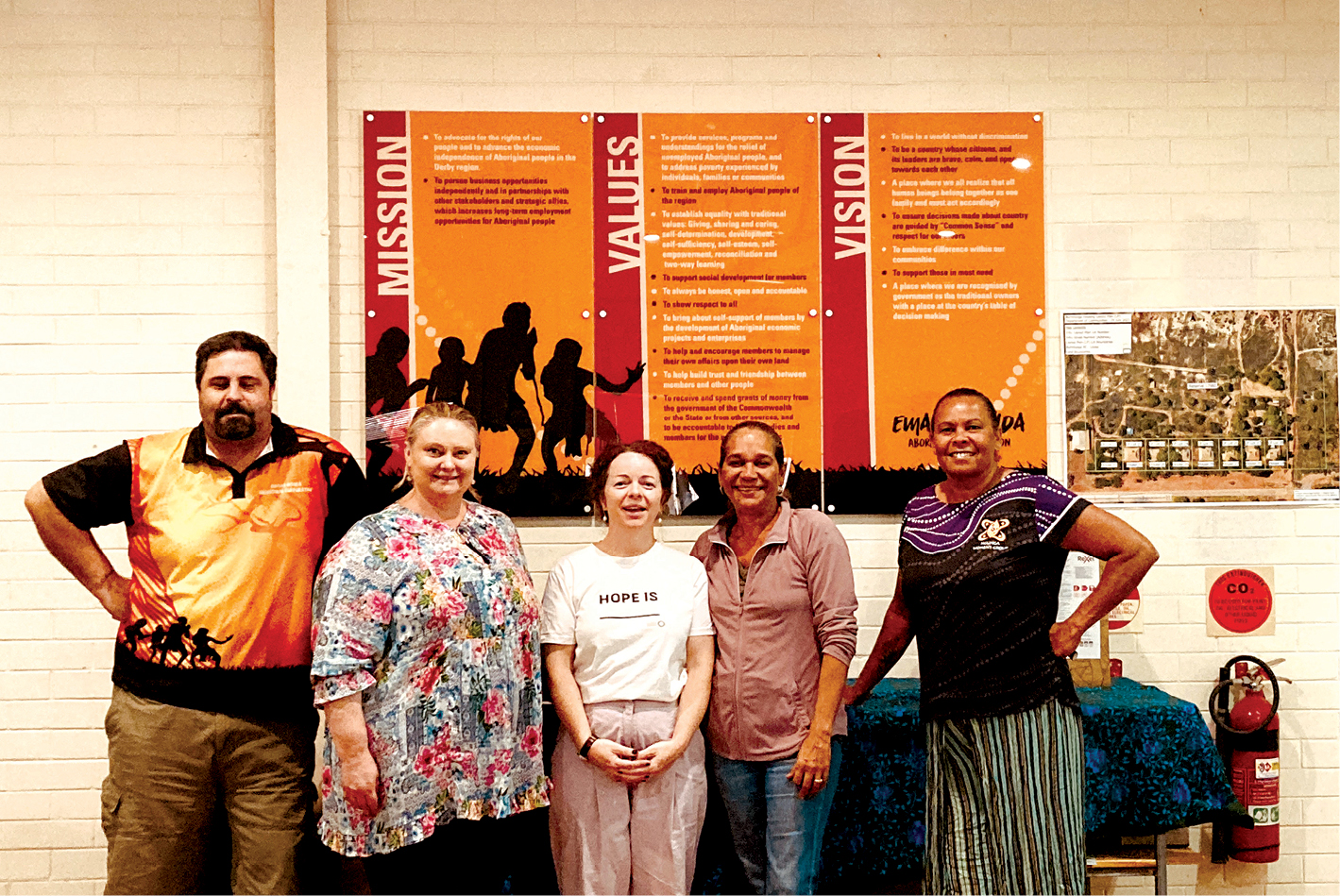
Overcoming Barriers
Governments and organisations must look for ways to empower Aboriginal communities, for example by:
- Providing adequate funding and culturally appropriate services to reduce the economic, social, and political disparities between Aboriginal and non-Aboriginal people.
- Supporting Aboriginal Community Controlled Organisations (ACCOs) to take leadership roles in provision of these services and focus on community led solutions.
- Undertaking mutual capacity building and knowledge sharing activities with ACCO partners.
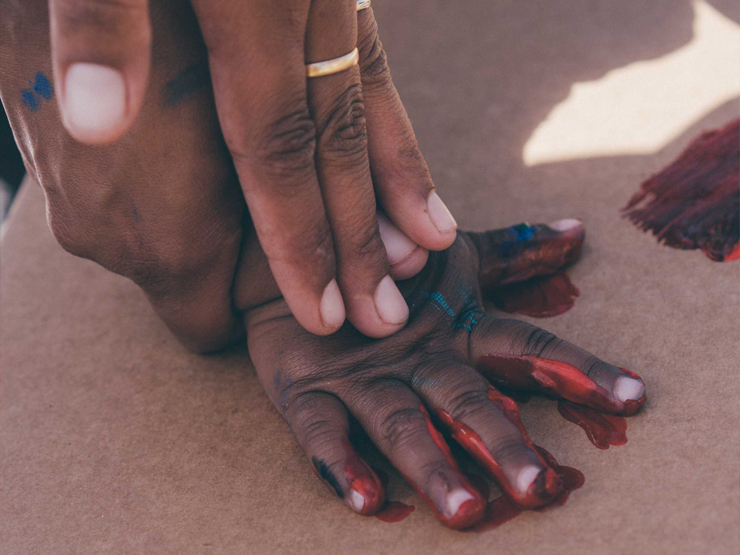
What we are Doing to Help?
Australia is home to the oldest living cultures in the world and Anglicare WA has a long history of working closely with Aboriginal peoples, as clients, advisors and partners in social change.
Anglicare WA has supported the Uluru Statement from the Heart since its inception, and still do. We thank Aboriginal and Torres Strait Islander Peoples for their generous invitation to walk together towards a better future for all Australians.
We are implementing our Reconciliation Action Plan to embed cultural security into all aspects of our work and to improve retention and employment opportunities and wellbeing outcomes for Aboriginal and Torres Strait Islander peoples.
We believe we can have the biggest impact on addressing Aboriginal disadvantage by supporting Aboriginal clients with our services and supporting the Aboriginal community through our advocacy.
Aboriginal and Torres Strait Islander Recognition and Justice Advocacy Principles
We seek guidance from Aboriginal and Torres Strait Islander people, including our Aboriginal Advisory Group, on issues relating to our services, Aboriginal engagement and in our advocacy work.
We work independently and in collaboration with others to raise awareness on issues that matter and to seek policy change by:
- Directly contributing to policy making submissions, meetings and hearings.
- Supporting campaigns led by Reconciliation WA and being a member of the Social Reinvestment WA network that works for systemic change and ‘smart’ justice to end the over-representation of Aboriginal people in custody in WA.
- Changing the narrative- truth telling by
- Focusing on acknowledging history and celebrating culture through advocacy and the arts, social media, and reinforcing messages from above campaigns.
- Committing to truth-telling by finding opportunities to ask, listen and share its history; model different ways of talking about our history.
Our advocacy work centers around four principles:
Other Advocacy Priorities
Through our advocacy, we are committed to creating economic justice and fairness, ensuring everyone has a home, seeking freedom from family and domestic violence and abuse, and supporting Aboriginal and Torres Strait Islander recognition and justice recognition and justice through the principles of truth-telling, listening, healing, and valuing Culture.


